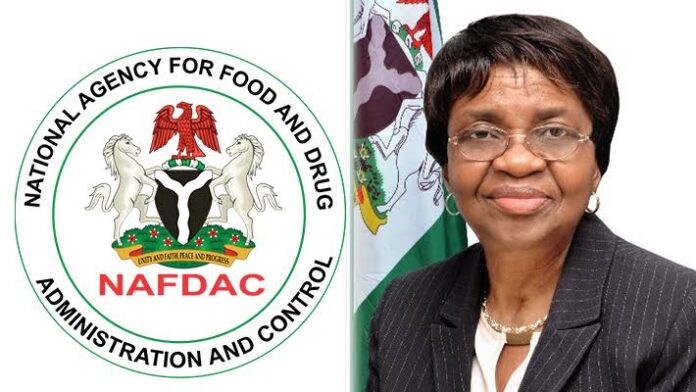By Blessing Otobong-Gabriel
In commemoration of World Breastfeeding Week, Director-General of the National Agency for Food and Drug Administration and Control, NAFDAC, Professor Mojisola Adeyeye has lamented the lack of support for breastfeeding mothers and urged them to optimally breastfeed their children so as to improve the health status of their newborns and lower
their risk of breast and ovarian cancers.
Speaking during the 2024 World Breastfeeding celebration with the theme; “Closing the Gap: Breastfeeding Support for All,” Adeyeye said breastfed babies have stronger immunity and a reduced risk of suffering many childhood illnesses and infections.
According to her, “many women do not receive the support they need to optimally breastfeed their babies, including access to trained personnel, providing empathetic and respectful health advice and counseling throughout their breastfeeding journey.
Professor Adeyeye, who was represented by the Director, Food Safety and Applied Nutrition, Mrs Eva Edwards, added that it is also associated with longer-term health benefits including higher intelligence quotient for infants that were exclusively breastfed by their mothers.
Adeyeye revealed that according to the Nigeria Demographic and Health Survey of 2018, 97 percent of children are breastfed in Nigeria at one point or the other, stressing that only 42 percent of them are breastfed within one hour of birth.
She disclosed that the proportion of children (0-6 months) who are exclusively breastfed is 29 percent, adding that the 2021 Multiple Indicator Cluster Survey put the figure for exclusive breastfeeding at approximately 34 percent.
She expressed delight that both figures show improvement in national exclusive breastfeeding figures from the previous 17 percent, but noted that it still falls far short of the World Health Organisation’s, WHO, target of increasing exclusive breastfeeding rate to at least 50 percent by the year 2025.
She informed that, “the World Health Organisation recommends early initiation of breastfeeding within one hour of a baby’s birth, exclusive breastfeeding for the first six months of life, followed by introduction of safe, appropriate, adequate and complementary foods as from six months, while breastfeeding continues up to two years of age or beyond.
The director-general inaugurated the Lagos State Breast Milk Substitute, BMS, Multisectoral Technical Committee and Advocacy Team as a collaborative strategy for the breast milk substitute code compliance and monitoring.
She stated that World Breastfeeding Week is celebrated annually to create awareness and generate support for improved breastfeeding practices for infants and young children, adding that the theme of this year’s celebration highlights the need to improve breastfeeding support to reduce health inequities that exist in our societies with a special focus on breast feeding in time of emergencies and crises, as well as protecting the right of mothers and babies to survive and thrive.
Adeyeye noted that it is the collective responsibility of all to ensure that every mother receives the support she needs to make breastfeeding a successful and fulfilling experience.
“This therefore calls for action from all of us in our respective capacities as breastfeeding actors to accelerate progress and scale optimal breastfeeding practices in order to achieve the global target to save the lives of our children and mothers, adding that in order to successfully breastfeed babies, mothers need support such as food supplementation, from the health system, family members, community members and the work place.”





